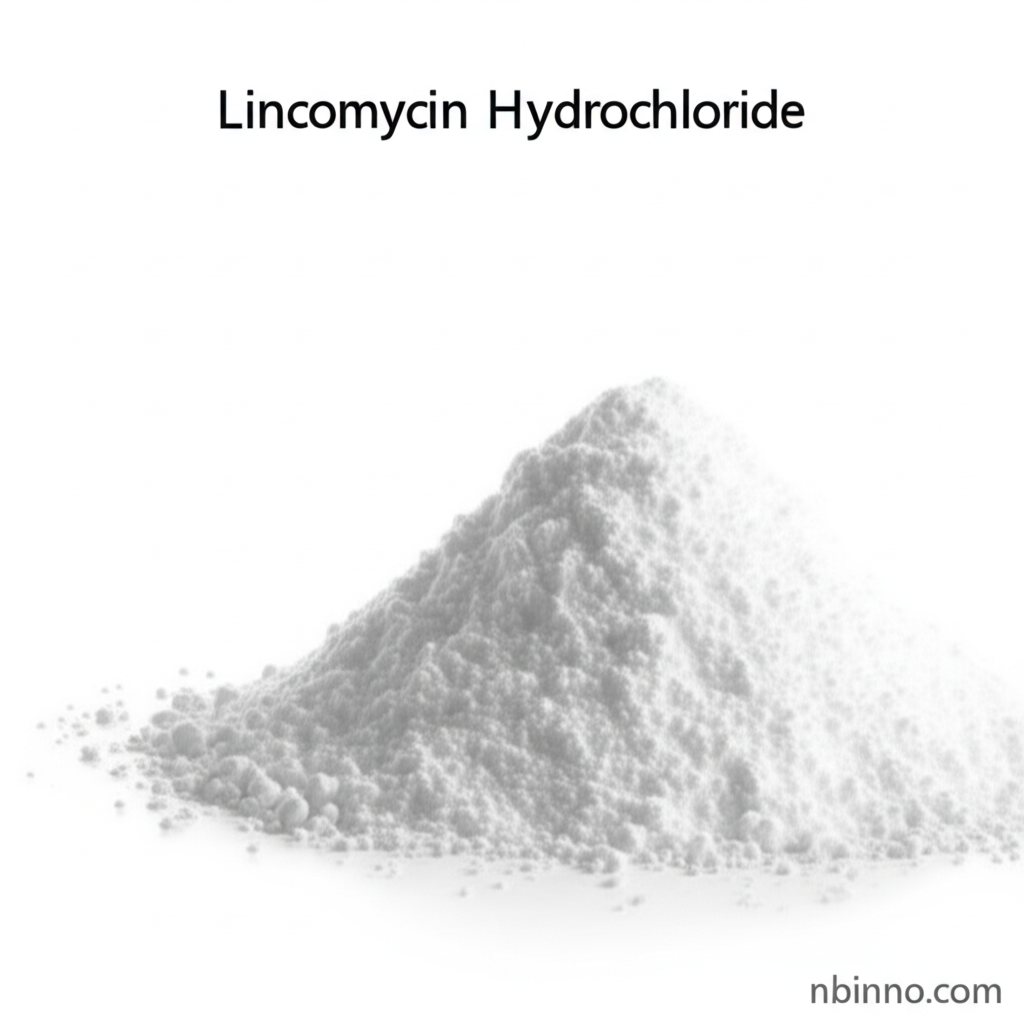Lincomycin Hydrochloride: Your Trusted Antibiotic Solution
Explore the efficacy and applications of a key antibiotic API for combating bacterial infections.
Get a Quote & SampleProduct Core Value

Lincomycin Hydrochloride
Lincomycin Hydrochloride is a potent synthetic antibiotic from the lincosamide class, renowned for its ability to inhibit bacterial protein synthesis. This mechanism effectively curbs the growth and replication of susceptible microorganisms, making it a vital component in treating a wide spectrum of bacterial infections.
- High purity (>99%) lincomycin hydrochloride is essential for effective bacterial infection treatment, ensuring maximum therapeutic benefit.
- Understand the lincomycin hydrochloride antibiotic mechanism: it binds to the 50S subunit of bacterial ribosomes, halting protein synthesis.
- When considering lincomycin hydrochloride supplier China, prioritize quality and compliance for your pharmaceutical needs.
- Reliable lincomycin hydrochloride dosage and administration guidelines are crucial for optimal patient outcomes.
Key Advantages Offered
Broad Spectrum Efficacy
Lincomycin Hydrochloride is particularly effective against gram-positive bacteria such as Streptococcus and Staphylococcus species, addressing critical infections.
Versatile Formulations
Available in both oral capsules/tablets and injectable forms, providing flexibility for various treatment regimens and infection severities.
Penicillin Allergy Alternative
Serves as a viable therapeutic option for patients who are allergic to penicillin or cannot tolerate penicillin-type drugs.
Key Applications
Respiratory Tract Infections
Oral formulations are highly suitable for treating respiratory infections caused by susceptible bacteria like Staphylococcus aureus and Streptococcus pneumonia.
Skin and Soft Tissue Infections
The drug's efficacy extends to various skin and soft tissue infections, a common concern addressed by lincomycin hydrochloride uses.
Bone and Joint Infections
Injectable forms are critical for severe bone and joint infections, including chronic conditions and acute hematogenous osteomyelitis.
Surgical Adjuvant Therapy
Often used as an adjunct in surgical therapies for conditions like septicemia, complementing surgical interventions for better outcomes.
